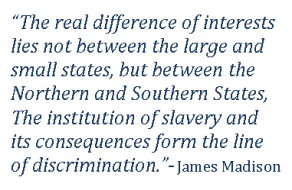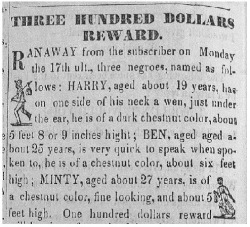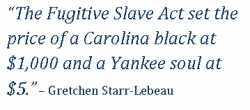Reaction: The Fugitive Slave Laws
Fugitive Slave Act of 1793
Compromise of 1850
· Included a stricter version of the Fugitive Slave Act of 1793 in reaction to the large amounts of slaves escaping through the Underground Railroad
- Designated certain judges for trials to legally return runaway slaves
- Prohibited slaves to testify defend themselves in court
- Required all citizens to help slave catchers
- Failure to abide by this law was punishable for $1000 and 6 months in prison
· Encouraged the capturing and returning of slaves
- Federal officials were paid $10 if the defendant was deemed a slave, and returned
- Federal officials were paid only $5 if the defendant was not deemed a slave
- Designated certain judges for trials to legally return runaway slaves
- Prohibited slaves to testify defend themselves in court
- Required all citizens to help slave catchers
- Failure to abide by this law was punishable for $1000 and 6 months in prison
· Encouraged the capturing and returning of slaves
- Federal officials were paid $10 if the defendant was deemed a slave, and returned
- Federal officials were paid only $5 if the defendant was not deemed a slave



